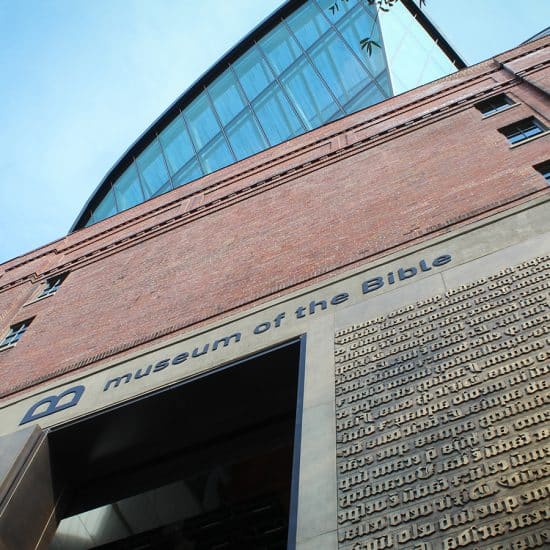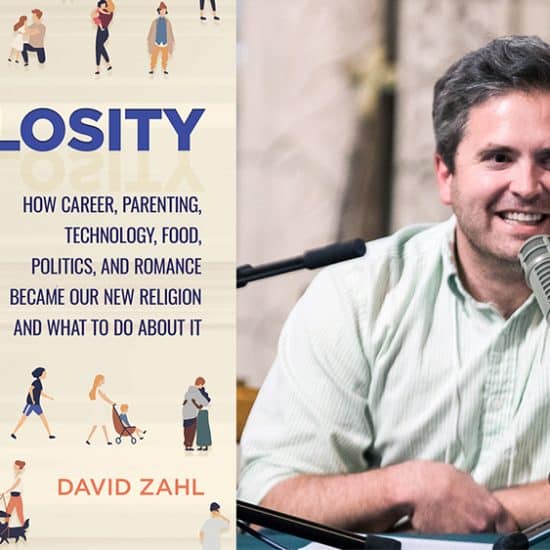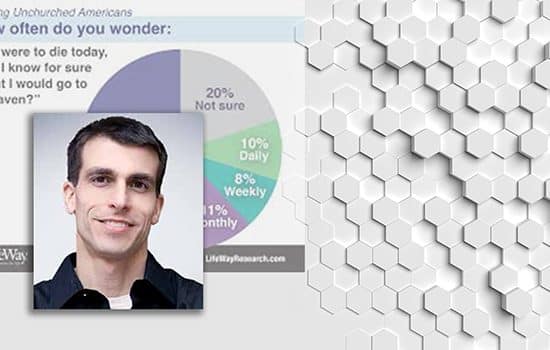Jeremy Bell is the general secretary of the North American Baptist Fellowship, a regional body of the Baptist World Alliance. A Canadian Baptist leader , Bell previously served as executive minister of the Canadian Baptists of Western Canada, founding pastor of Kitsilano Christian Community Church in Vancouver, minister at First Baptist Church in Vancouver and a chaplain and residential dean at Carey Hall. Word&Way Editor Brian Kaylor interviewed Bell as they traveled together on April 20 to the Churchnet Spring Gathering at University Heights Baptist Church in Springfield, Mo. Kaylor also serves as associate director for Churchnet.
In January, you were elected as the general secretary of the North American Baptist Fellowship. For those who aren’t familiar with the NABF, can you tell us a little bit about who is the North American Baptist Fellowship?
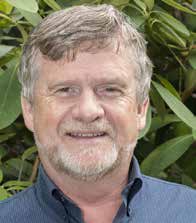 Jeremy BellNorth American Baptist Fellowship represents a portion of the 80 different Baptist denominations and 45 educational institutions that are in North America. Represents at different times a couple of dozen groups, about 19-20 million people and 55,000 churches. And very, very diverse, not just in terms of geography — it includes Canada and the United States. It erroneously describes itself as ‘North American’ when we don’t really recently have a relationship with Mexico — but we’re working on that, maybe not as deeply tied together as NAFTA but we’ll maybe pull something out in the near future.
Jeremy BellNorth American Baptist Fellowship represents a portion of the 80 different Baptist denominations and 45 educational institutions that are in North America. Represents at different times a couple of dozen groups, about 19-20 million people and 55,000 churches. And very, very diverse, not just in terms of geography — it includes Canada and the United States. It erroneously describes itself as ‘North American’ when we don’t really recently have a relationship with Mexico — but we’re working on that, maybe not as deeply tied together as NAFTA but we’ll maybe pull something out in the near future.
It’s a group that recognizes, encourages and trods and prompts one another’s ministries. As we enter these next months and years — this new season — we really want to learn from each other. And as we seek to give thanks to a faithful God, we really want to see how that faithfulness from our Lord gets lived out in the work that we’re called to.
It’s kind of exciting to be engaged in that wide-range cross-section of people, intercultural, intergenerational and from far and wide.
The NABF is a regional fellowship of the Baptist World Alliance. I know you’ve been involved with the BWA for many years and your father was involved in leadership for many years. I wonder if you can talk about the Baptist World Alliance and what that’s meant to you and your faith journey and ministry?
I recall many hours around the dining room table [and] the kitchen counter in our home in Vancouver when my father would bring to our home or into conversation some wonderful people: Duke McCall, Denton Lotz, Gerhard Claas. Different people that were part of challenging the culture of the day that was dismissive of faith, and yet, [who] wanted to represent faith — Baptist faith — as loving and welcoming, hospitable and really a place and a group of people — a family of people — that wanted to remove barriers.
Martin Gilbert, who was the secular- Jewish historian of Winston Churchill, often said of Baptists that saved Jews of the Second World War in Ukraine that they were “on the margins of society.” And many Baptists around the world were on the margins of society. Still are. Still suffer. And that whole sense of collegiality, praying and encouraging one another, seeking religious liberty for all — as Thomas Helwys would say — not just us, but for all, was something that animated me as a child.
Martin Gilbert went on to say that Baptists “had a healthy disrespect for authority,” which I kind of like.
In Canada, we had our second Prime Minister [Alexander Mackenzie, a Baptist] was the anti-corruption guy. And our Prime Minister John Diefenbaker [a Baptist], from the 1950s, was someone who gave indigenous people the right to vote and put [indigenous] folk in the Senate and women in the Cabinet. And Tommy Douglas [a Canadian politician and Baptist minister] not only created balanced budgets but [also] electrification as a social justice issue to rural Saskatchewan and medicare to the country.
Those are wonderful things — never mind the stuff that happened in the States with the Nobel Peace Prize that has gone to Martin Luther King Jr., Al Gore, Jimmy Carter. These are moments not for burnishing a reputation or for revealing in some past glory, but saying these are moments of values and justice rooted in the Scripture, but [also] rooted often by being on the margins of society — being in but not of, being incarnational, knowing that we seek a better country as it says in Hebrews.
So, I was exposed to that as a kid.
Then, when I became executive minister of Canadian Baptists of Western Canada, it was an opportunity to serve. Went to [BWA meetings in] Birmingham [England], went to Hawaii, plan to go to Rio [Brazil], and have gone to several annual events where we touch base together as a larger family. … There’s some real things in our world. Real, passionate, difficult, challenging things. … Those challenges remain before us. May we [act] by God’s strength in the BWA and as the North American Baptist Fellowship — which has been given much that we may also share and give to others.
You mentioned your leadership roles with Baptists in western Canada. Could share a little bit about what Baptists in that part of our continent are like? What would you like us to know about Baptists out in western Canada?
Well, there are about 24,000 churches in Canada. Probably half of those are Roman Catholic, which is the dominant faith tradition in Canada.
Out of those churches, about 2,700 are Baptist churches in the main of about eight different stripes. A group of about 1,000-1,100 would be Canadian Baptist Ministries-linked, that’s our international work and often represented at BWA. French Baptist Union. Atlantic Baptists. Canadian Baptists of Western Canada, I was part of. Canadian Baptists of Ontario and Quebec. … Fellowship Baptists are strong — about 500 churches — in southern Ontario and British Columbia. Baptist General Conference, Swedish origins. North American Baptists, German origins. And the Canadian National Baptist Association, Southern Baptist origins.
So, a real diversity — ethnically, geographically.
Within a 100-mile band of the 49th-parallel — our border with the States — is most of our population. So, spread across that geographically, it’s hard sometimes to find congruence and unity, engagement.
We have in Canada several challenges that would differentiate us from the States, and several things we have in common. We have a fairly comprehensive medical system and a fairly evenly-applied — although provincially-controlled — education system. The exceptions there are the many First Nations’ communities.
First Nations in our tradition is indigenous communities. There’s been a huge lack of proper water, a huge lack of educational and health standards. Highest incidence of teenage suicide in the western world. Some incredible difficult pieces. … We know — in a Spirit-infused humility, when we’re open to that — that we have much to do, much to take care of, much to pay attention to that we’ve not in the past.
We have that struggle with those that who are experiencing a huge wage differential in very, very accelerated housing issues. Most of the major cities in Canada — about 75 percent, 80 percent of the major cities in Canada — have serious, very serious housing affordability and accessibility issues. The disparity between lower-income and higher-income is massive, destructive and problematic. So, there’s a variety of things that are happening within that context.
There are real different kinds of challenges. Our violence, our discrimination, our poverty in Canada tend to be framed differently than in America, but [we] still have deep issues that resound between the two of us.
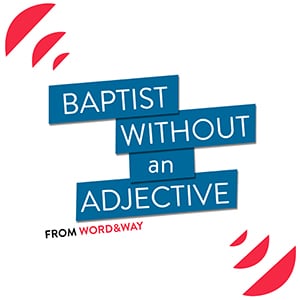 Note: A longer version of this conversation can be heard in episode 7 of the weekly Word&Way podcast “Baptist Without An Adjective.” Among the additional content in the full interview, Bell talks more about Canadian Baptists and efforts to repair relationships with First Nations people.
Note: A longer version of this conversation can be heard in episode 7 of the weekly Word&Way podcast “Baptist Without An Adjective.” Among the additional content in the full interview, Bell talks more about Canadian Baptists and efforts to repair relationships with First Nations people.


